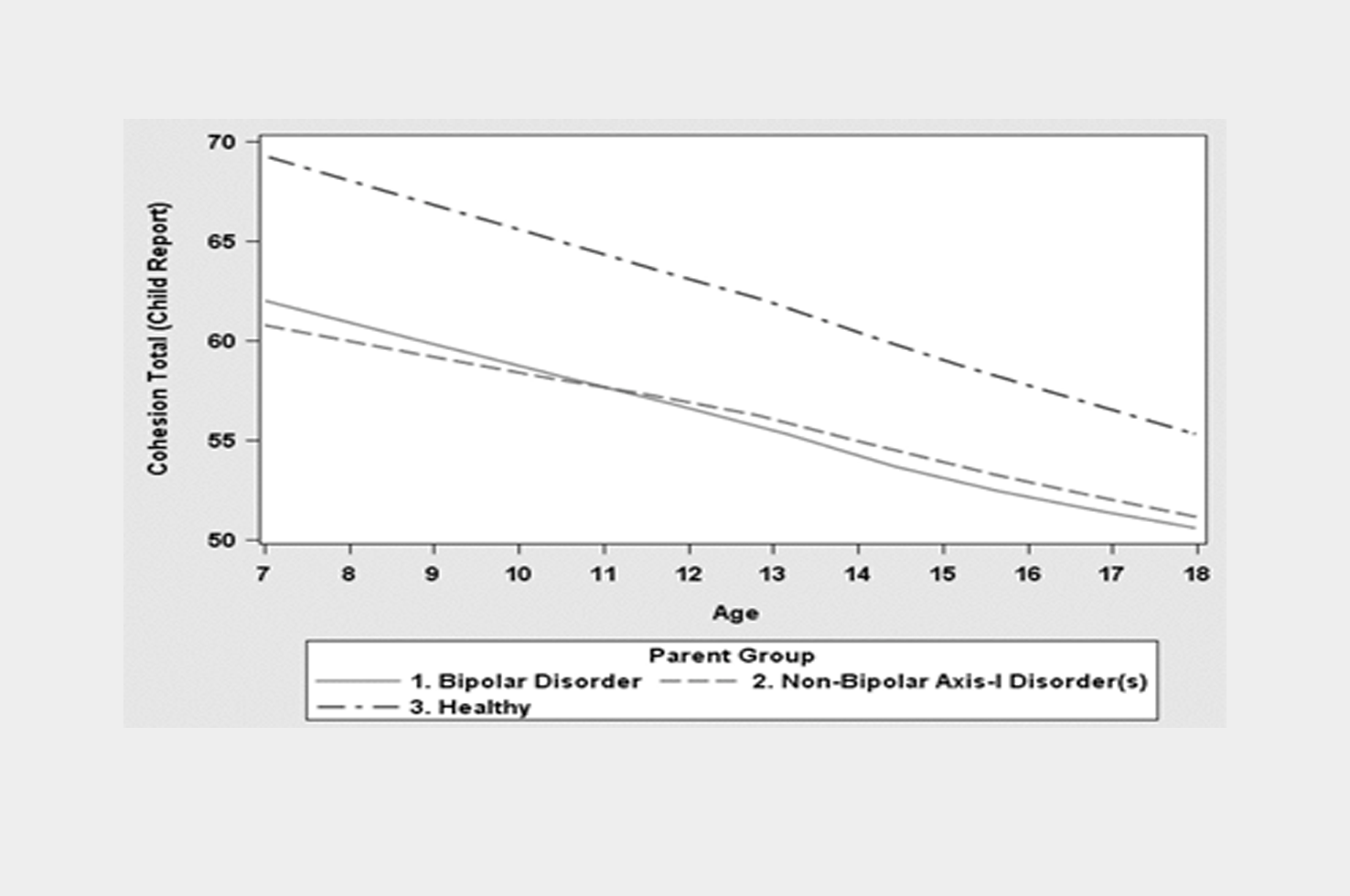New Research in the Journal of the American Academy of Child & Adolescent Psychiatry Examines Family Functioning in Offspring of Bipolar Parents

For people living with bipolar disorder, challenging family relations can both result from and aggravate the disorder’s symptoms. Existing studies that examine the family environment of young people with familial risk for bipolar disorder have not distinguished whether stressors—such as high rates of conflict—are uniquely related to this disorder or are similarly experienced by families affected by other, non-bipolar disorder psychopathology. These studies have also been limited by factors including small samples, lack of control groups or only healthy control groups. Acquiring a greater understanding of dynamics in families of youth offspring of bipolar parents can lead to improved assessment and preventive interventions for young people.
A recent study—led by Boris Birmaher, MD, and including Pitt Psychiatry Visiting Fellow Amit Shalev, MD, as well as faculty Tina Goldstein, PhD, David Brent, MD, MPH, Danella Hafeman, MD, PhD, Dara Sakolsky, MD, PhD, and Rasim Diler, MD, of the long-term Pittsburgh Bipolar Offspring Study (BIOS)—compared family functioning among youths who have at least one parent with bipolar disorder, youths whose parents have other, non-bipolar psychiatric disorders and healthy control families. The team hypothesized:
families of parents with bipolar disorder (particularly those whose children also have psychopathology) would show greater conflict, less cohesion (emotional bonding among family members) and less adaptability (the ability of the family to change in response to situational and developmental needs) than healthy control families;
no significant differences in family functioning would be observed in families with bipolar disorder versus other psychopathology, though the functioning of these two populations would be worse than that of the healthy control group;
psychosocial functioning and psychopathology in parents and children would predict family functioning;
as family conflict tends to increase and family cohesion tends to decrease during adolescence, the levels of these variables would change over follow-up.
The study, recently published in the Journal of the American Academy of Child & Adolescent Psychiatry, analyzed three subgroups of children ages 7–18 and their parents from the BIOS study: bipolar parents, parents with other psychiatric disorders, and control parents. Subjects (parents and offspring) were assessed biannually using direct interview. The team observed that families with bipolar disorder and non-bipolar psychopathology showed significantly less cohesion and adaptability and greater conflict than control families. They also confirmed that there was no significant difference in these family dynamics between families with bipolar disorder and other psychopathology. Their analysis demonstrated for the first time that the increase in family conflict and decrease in cohesion is an age-related pattern (from 7–18) common to all three groups.
“Family functioning influences psychopathology (of children and parents), which influences the functioning of the family unit,” said Dr. Shalev, the study’s first author. “When providing therapy to youth patients, it is important to evaluate family functioning, and provide therapy to both the child and the parents, and if indicated, to the family unit itself. The assessment and therapy process should be done while considering the alterations in family dynamics that are expected to occur as children mature.”
A Longitudinal Study of Family Functioning in Offspring of Bipolar Parents
Shalev A, Merranko J, Goldstein T, Miklowitz DJ, Axelson D, Goldstein BI, Brent D, Monk K, Hickey MB, Hafeman DM, Sakolsky D, Diler R, Birmaher B.
Journal of the American Academy of Child & Adolescent Psychiatry, ePub online April 29, 2019.
